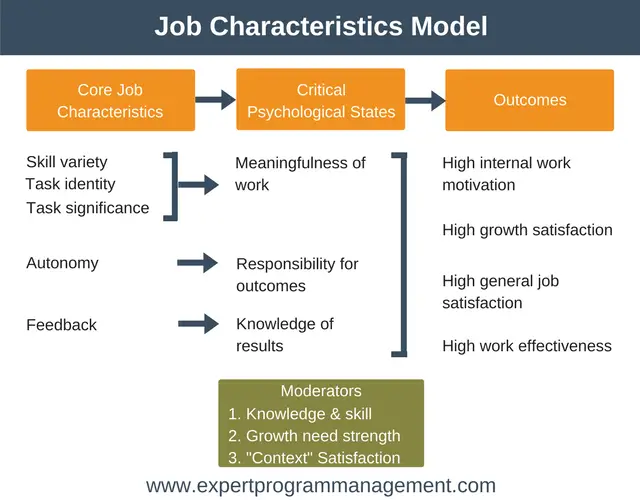

Wiley is a global provider of content and content-enabled workflow solutions in areas of scientific, technical, medical, and scholarly research professional development and education.

Using a four-factor model of affect (enthusiasm, fatigue, nervousness, and relaxation), we discuss preliminary implications for the design of work. Finally, Growth Need Strength (GNS) moderated the relation between the Motivating Potential Score (MPS) from the combined job characteristics and both activated pleasant and activated unpleasant affect. Skill variety was positively related, and task identity and task feedback were negatively correlated with activated unpleasant affect. Task significance and task autonomy were positively associated with activated pleasant affect. Regression analyses of the survey data from 370 managers in 26 organizations indicated that job characteristics explained an average of 19 per cent of the variance in activated pleasant affect and an average of 11 per cent of the variance in activated unpleasant affect. Using both approaches achieves both broad and specific assessments of the links between affective states and job characteristics. The second model utilized a more differentiated measurement scheme consisting of four unipolar mood scores. One model was based on traditional measures of 'positive' and 'negative' affect. Using two measurement models, we examined associations between perceptions of five job characteristics and self-reported mood. The potential consequences of affective experience at work prompt an examination of whether job characteristics are related to affect.


 0 kommentar(er)
0 kommentar(er)
